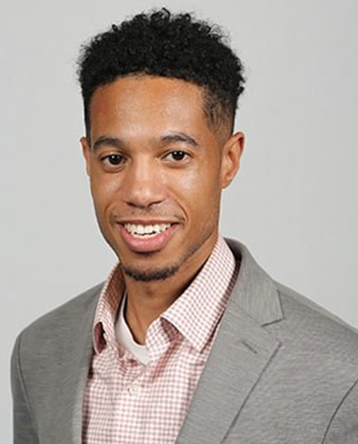Corey Harper
Assistant Professor, Civil and Environmental Engineering, Heinz College
Assistant Professor, Civil and Environmental Engineering, Heinz College

Corey Harper is an assistant professor in the Department of Civil and Environmental Engineering and Heinz School of Information Systems and Public Policy.
Harper directs the Future Mobility Systems Lab at CMU. Harper’s research interest lies in applying modeling and simulation tools (e.g., agent-based models or regional traffic models) and multi-source data analytics to assess the equity, environmental, congestion, and policy implications of emerging technologies on the transportation system.
In the past, Harper’s research has focused on climate resilient transportation systems and automation in transportation. Here, he has used cost-benefit analysis, modeling and simulation, and machine learning to ask questions such as “how does rain impact congestion on the transportation network” and “how could robocars impact parking revenues in our central business districts.”
Harper is also the recipient of the Elsevier ATLAS Best Paper Award for his work looking at the equity impacts of automation. In 2016, he was invited to become a Young Member on the Transportation Research Board Standing Committee for Vehicle-Highway Automation.
Harper received his B.S. in 2013 from Morgan State University (Civil Engineering) and completed his M.S. and Ph.D. in 2014 and 2017, respectively, from CEE at CMU. Before joining the faculty at CMU, Harper was a consultant at Booz Allen Hamilton, supporting clients on technical and policy issues related to cyber-physical systems, especially helping the United States Department of Transportation with the integration of connected and automated vehicles.
2017 Ph.D., Civil and Environmental Engineering, Carnegie Mellon University
2014 M.S., Civil and Environmental Engineering, Carnegie Mellon University
2013 B.S., Civil Engineering, Morgan State University
Civil and Environmental Engineering
A $1.25 million NSF grant will help an interdisciplinary team of CMU researchers design robots that can operate in public areas like sidewalks and street crossings without risking human safety.
CMU Engineering
College of Engineering researchers found that increased electric vehicle adoption can trigger new investment in sustainable energy generation and storage, making vehicle infrastructure greener.
CMU Engineering
People may be more likely to turn to ride-hailing services like Uber or Lyft for transportation during extremely hot weather, shows research from Carnegie Mellon engineering faculty.
Politico
CEE’s Corey Harper was quoted in Politico, Axios, and government technology about how the Trump administration’s spending freeze on EV chargers could affect U.S. consumers.
CMU Engineering
Researchers develop a metric to measure the gaps in EV charging coverage across the country, revealing the significant work that lies ahead in deploying charging infrastructure.
Wilton E. Scott Institute for Energy Innovation
The Wells Fargo Innovation Incubator has selected the Scott Institute for a 2022 Strategic Channel Partner Award.
CMU Engineering
Uber and Lyft are dramatically reducing wait-time disparities for Black riders, but the impact of systemic segregation persists.
Engineering and Public Policy
Lily Hanig was the 2024 recipient of the Bhakta and Sushama Rath Graduate Award for her research in the equity and sustainability impacts of U.S. transportation disruptions.
Wilton E. Scott Institute for Energy Innovation
On January 30th, the Wilton E. Scott Institute for Energy Innovation began our Spring 2024 event schedule by hosting the Intersection of Energy and Transportation Panel to explore the intersection of transportation and decarbonization.
Civil and Environmental Engineering
Navishka Pandit (MS '22) is making a significant impact as an engagement associate at EOS at Federated Hermes, where she analyzes sustainability and ESG issues for Fortune 500 companies, aiming to drive long-term value creation through sustainable business practices. Her journey from CEE at CMU to the financial industry highlights the importance of interdisciplinary education and determination to make a difference in the world of finance and sustainability.
CMU Engineering
Researchers investigated the impacts of online grocery delivery on energy use, emissions, and traffic congestion.
Civil and Environmental Engineering
Ph.D. candidate Sofia Martinez has been awarded the prestigious Dwight David Eisenhower Transportation Graduate Fellowship by the U.S. Department of Transportation, Federal Highway Administration. Co-advised by professors Costa Samaras and Corey Harper, she is focused on the electrification of the U.S. public transportation sector to reduce carbon emissions.